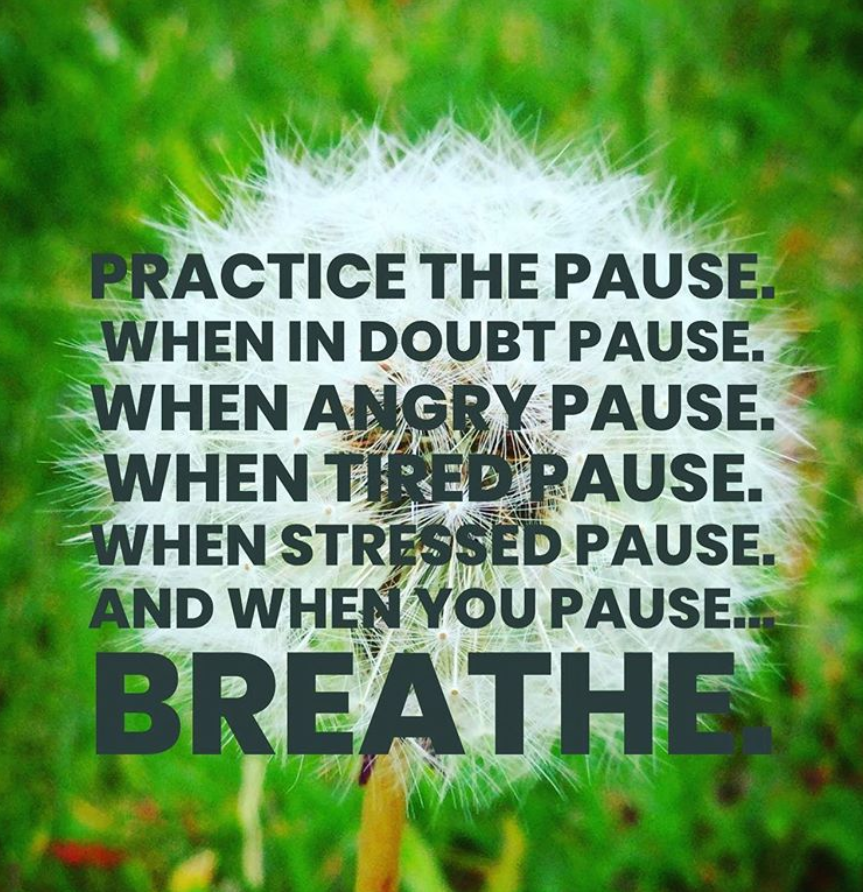Take a moment to look down and see how you’re breathing right now. 
We breathe all day long without ever thinking about it. Usually, this type of breathing is shallow and relatively fast-paced, especially when we’re stressed.
When something causes us stress, our body reacts by increasing the heart rate, tensing up muscles, and increasing blood pressure. This state is also known as “fight or flight.” While this response is critical in dangerous situations, it can wreak havoc on the body and mind when it never shuts off. When you spill a cup of coffee, have less money in your bank account than you thought, or are generally feeling anxious, your body remains in a state of stress.
What can you do about it? Pay attention to your breath. #pause
Shallow breathing—the kind that naturally occurs when we’re stressed—limits the diaphragm’s range of motion and doesn’t allow the lungs to get their full share of oxygenated air, thus making you feel short of breath and more anxious.
Deep abdominal breathing encourages full oxygen exchange, which allows your lungs to get what they need and subsequently slow the heartbeat and lower or stabilize blood pressure.
Abdominal breathing occurs when you breathe in a way that your stomach rises and falls while your chest remains still with every breath.

When something causes us stress, our body reacts by increasing the heart rate, tensing up muscles, and increasing blood pressure. This state is also known as “fight or flight.” While this response is critical in dangerous situations, it can wreak havoc on the body and mind when it never shuts off. When you spill a cup of coffee, have less money in your bank account than you thought, or are generally feeling anxious, your body remains in a state of stress.
What can you do about it? Pay attention to your breath. #pause
Shallow breathing—the kind that naturally occurs when we’re stressed—limits the diaphragm’s range of motion and doesn’t allow the lungs to get their full share of oxygenated air, thus making you feel short of breath and more anxious.
Deep abdominal breathing encourages full oxygen exchange, which allows your lungs to get what they need and subsequently slow the heartbeat and lower or stabilize blood pressure.
Abdominal breathing occurs when you breathe in a way that your stomach rises and falls while your chest remains still with every breath.
🌻Habits take repetition & muscle memory to become part of our healthy lifestyle and feel it's benefits. Take the next 10-21 days to practice self-love, be more mindful, get better sleep and more. Join a challenge here.














